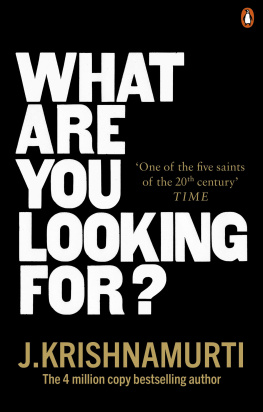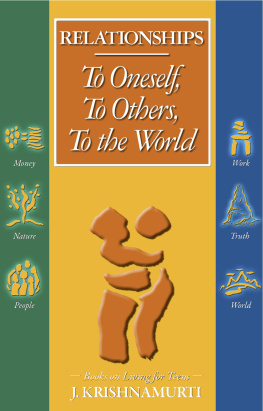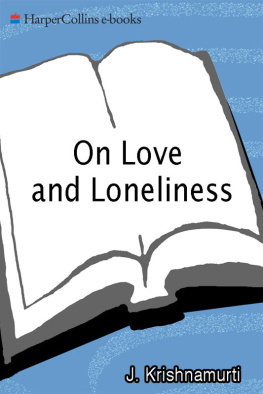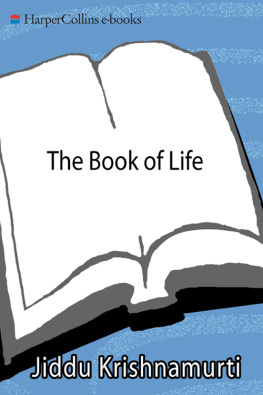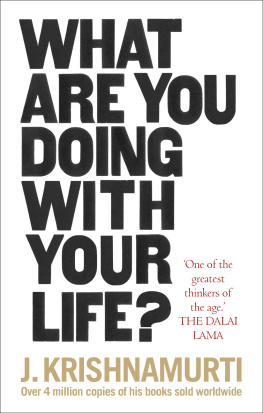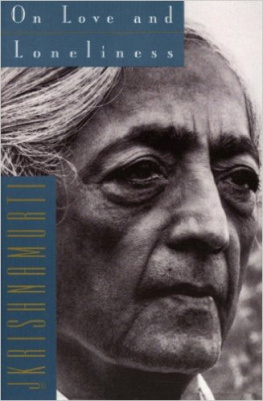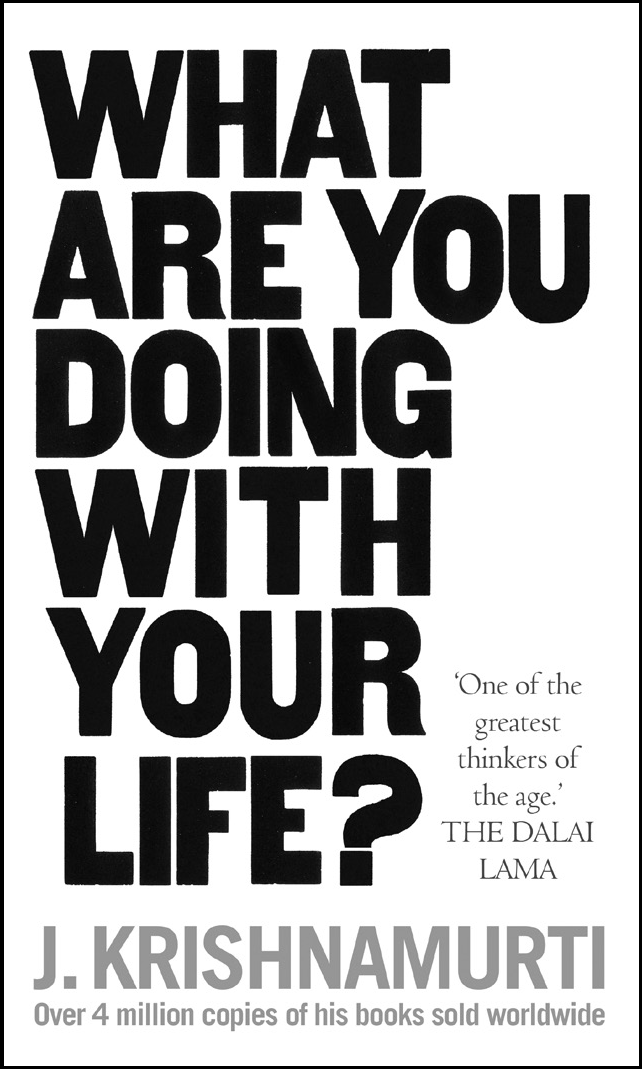
Who are you?
What are you?
What do you want from life?
One of the worlds great philosophical teachers, Krishnamurti, offers his inspiring wisdom on many of lifes hurdles from relationships and love, to anxiety and loneliness.
He answers such questions as What is the significance of life? and How do I live life to the full? to reveal the best way of being true to yourself.
Read by millions from all walks of life, Krishnamurti shows us there is no path, no higher authority, no guru to follow, and that ultimately it is our own responsibility as to how we live our lives.
ISBN: 9781846045851

EBURY
UK | USA | Canada | Ireland | Australia
New Zealand | India | South Africa
Ebury is part of the Penguin Random House group of companies whose addresses can be found at global.penguinrandomhouse.com.

First published in Great Britain by Rider in 2021
Published in the United States as Relationships: To Oneself, To Others,
To the World by Krishnamurti Foundation of America in 2007
Copyright Krishnamurti Foundation of America, 2007, 2021
The moral right of the author has been asserted
Cover Design Two Associates
ISBN: 978-1-473-58774-8
This ebook is copyright material and must not be copied, reproduced, transferred, distributed, leased, licensed or publicly performed or used in any way except as specifically permitted in writing by the publishers, as allowed under the terms and conditions under which it was purchased or as strictly permitted by applicable copyright law. Any unauthorized distribution or use of this text may be a direct infringement of the authors and publishers rights and those responsible may be liable in law accordingly.
J. Krishnamurti taught young people all over the world and founded schools in California, England, and India. When one is young, he said, one must be revolutionary, not merely in revolt to be psychologically revolutionary means non-acceptance of any pattern.
One of the greatest thinkers of the age.
The Dalai Lama
One of the five saints of the 20th century.
Time
In my own life Krishnamurti influenced me profoundly and helped me personally break through the confines of my own self-imposed restrictions to my freedom.
Deepak Chopra
I feel the meaning of Krishnamurti for our time is that one has to think for oneself and not be swayed by any outside religions or spiritual authorities.
Van Morrison
To listen to him or to read his thoughts is to face oneself and the world with an astonishing morning freshness.
Anne Morrow Lindbergh
It was like listening to a discourse of the Buddhasuch power, such intrinsic authority.
Aldous Huxley
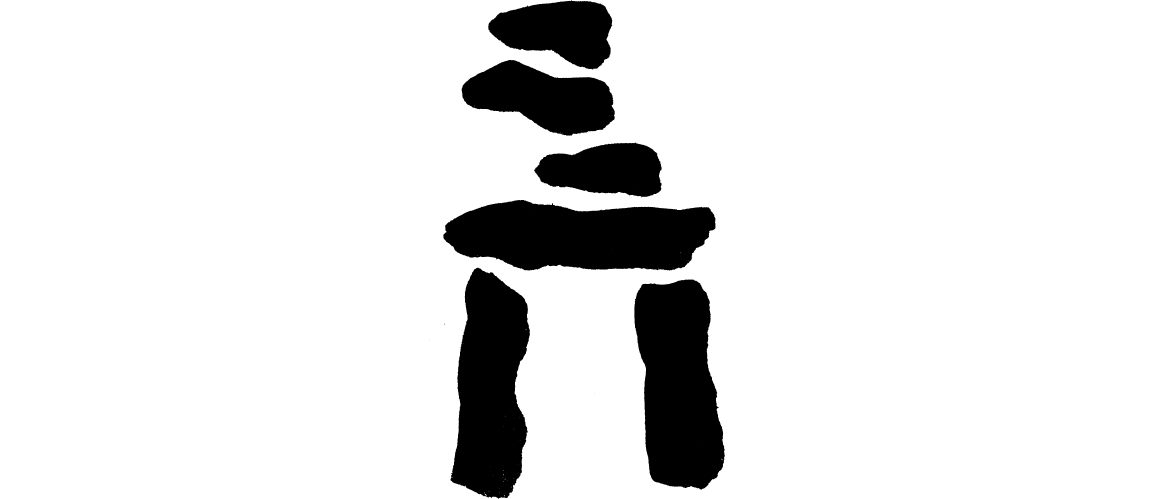
Foreword
JIDDU KRISHNAMURTI (1895-1986) is regarded internationally as one of the great educators and philosophers of our time. Born in South India, he was educated in England, and traveled the world, giving public talks, holding dialogues, writing, and founding schools until the end of his life at the age of ninety. He claimed allegiance to no caste, nationality, or religion and was bound by no tradition.
Time magazine named Krishnamurti, along with Mother Teresa, one of the five saints of the 20th century, and the Dalai Lama calls Krishnamurti one of the greatest thinkers of the age.
His teachings are published in 75 books and over 4 million copies of his books have been sold in over 30 languages.
The rejection of all spiritual and psychological authority, including his own, is a fundamental theme. He said human beings have to free themselves of fear, conditioning, authority, and dogma through self-knowledge. He suggested that this will bring about order and real psychological change. Our violent, conflict-ridden world cannot be transformed into a life of goodness, love, and compassion by any political, social, or economic strategies. It can be transformed only through mutation in individuals brought about through their own observation without any guru or organized religion.
Krishnamurtis stature as an original philosopher attracted traditional and also creative people from all walks of life. Heads of state, eminent scientists, prominent leaders of the United Nations and various religious organizations, psychiatrists and psychologists, and university professors all engaged in dialogue with Krishnamurti. Students, teachers, and millions of people from all walks of life read his books and came to hear him speak. He bridged science and religion without the use of jargon, so scientists and lay people alike could understand his discussions of time, thought, insight, and death.
During his lifetime, Krishnamurti established foundations in the United States, India, England, Canada, and Spain. Their defined role is the preservation and dissemination of the teachings, but without any authority to interpret or deify the teachings or the person.
Krishnamurti also founded schools in India, England, and the United States. He envisioned that education should emphasize the understanding of the whole human being, mind and heart, not the mere acquisition of academic and intellectual skills. Education must be for learning skills in the art of living, not only the technology to make a living.
Krishnamurti said, Surely a school is a place where one learns about the totality, the wholeness of life. Academic excellence is absolutely necessary, but a school includes much more than that. It is a place where both the teacher and the taught explore, not only the outer world, the world of knowledge, but also their own thinking, their behavior.
He said of his work, There is no belief demanded or asked, there are no followers, there are no cults, there is no persuasion of any kind, in any direction, and therefore only then we can meet on the same platform, on the same ground, at the same level. Then we can together observe the extraordinary phenomena of human existence.
R.E. Mark Lee,
Executive Director,
Krishnamurti Foundation of America

Introduction
We all live in relationship. We live in relationship to one another, to our families, to the world, to the earth, and the universe.
Because all life is lived in relationship, it is essential that we understand what relationship is, and what every movement in relationshipto lovers, parents, friends, teachers, societycan mean to us and to everyone else.
Put together, all our individual relationships create society. Society is us. So what we are in relationship, each one of us, creates society. If we are angry, jealous, aggressively ambitious, self-pityingly lonely, depressed, prejudiced, exclusive in relationship, we create a society that is crazy. Multiply each self-centered or affectionate, greedy or generous one of us in relationship with another by six billionand that is our world. Everything we are affects everything else: people, animals, earth, biosphere. As you can see, this goes both ways. Every evil affects us all; but so does every good.

